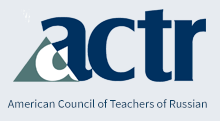Russian Language Journal
Keywords
COVID-19 pandemic, language and culture, language learning, culture learning, human connection
Abstract
Research on the experiences of U.S. college students with emergency remote instruction during the COVID-19 pandemic highlights the importance of human interaction and relationships for students’ learning, their satisfaction with their academic coursework, and their overall mental health and well-being. Given the centrality of interaction in second language acquisition and teaching, theCOVID-19 emergency has revealed that instructional programs in languages are uniquely positioned among all academic disciplines as potential sites for human connection in emergency and non-emergency contexts alike. This article offers a case study of how one postsecondary Russian program, the UW-Madison Russian Flagship, leveraged existing affordances in the program’s design (Evans-Romaine and Murphy 2021) to support new forms of human interaction and connection through language learning in the context of emergency remote instruction during theCOVID-19 pandemic. Components of the program’s design that are included in this descriptive case study are Russian language instruction, with a focus on summer intensive instruction at lower levels; Russian language tutoring; student advising and peer mentoring; co-curricular programming; and the residential Russkii dom in the university’s International Learning Community. The pedagogical design is supported by administrative practices also described in this article that place the well-being of students at their center.
Recommended Citation
Evans-Romaine, Karen; Murphy, Dianna; Tumarkin, Anna; Marshall, Laura; and Almuratova, Assel
(2021)
"Connecting through Language and Culture Learning during the COVID-19 Pandemic: The University of Wisconsin–Madison Russian Flagship Program,"
Russian Language Journal: Vol. 71:
Iss.
2, Article 2.
DOI: https://doi.org/10.26067/Y8ZR-W567
Available at:
https://scholarsarchive.byu.edu/rlj/vol71/iss2/2

